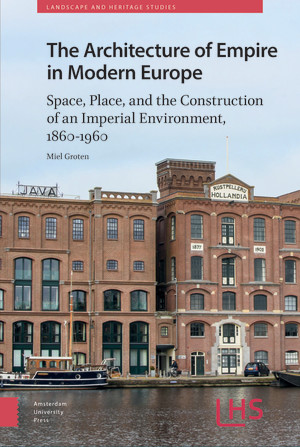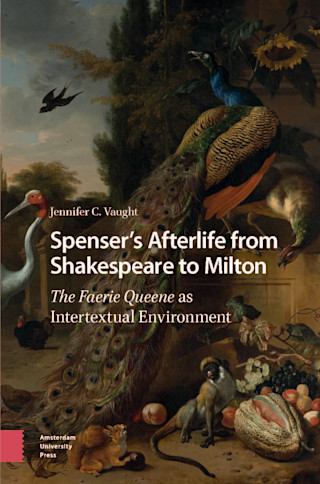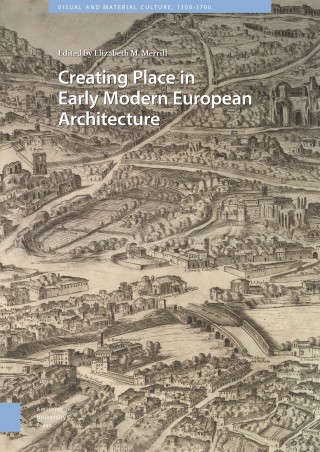

- Titel
- The Architecture of Empire in Modern Europe
- Subtitel
- Space, Place, and the Construction of an Imperial Environment, 1860-1960
- Auteur
- Miel Groten
- Prijs
- € 165,00 excl. BTW
- ISBN
- 9789463721479
- Uitvoering
- Hardback
- Aantal pagina's
- 340
- Taal
- Engels
- Publicatiedatum
- 28 - 09 - 2022
- Afmetingen
- 15.6 x 23.4 cm
- Partner

- Ook beschikbaar als
- eBook PDF - € 0,00
List of figures
Abbreviations
Introduction. The places of empire
Chapter 1. Gates to the ‘heathen world’
Part I. Mission houses, religion, and the civilising mission
Part II. The Missionshaus in Basel
Chapter 2. Imperial cities, imperial citizens
Part I. Imperial identities in government- and public buildings
Part II. The City Chambers in Glasgow
Chapter 3. The cultural effects of economic entanglements
Part I. Factories and industries in imperial culture
Part II. The rice mills in the Zaan region
Chapter 4. Business palaces to rule the waves
Part I. Maritime ambitions in shipping line offices
Part II. The HAPAG head office in Hamburg
Chapter 5. Propaganda and science in imperial museums
Part I. Ethnographic and colonial museums
Part II. The Musée des Colonies in Paris
Conclusion
Figures
Bibliography
Index
Abbreviations
Introduction. The places of empire
Chapter 1. Gates to the ‘heathen world’
Part I. Mission houses, religion, and the civilising mission
Part II. The Missionshaus in Basel
Chapter 2. Imperial cities, imperial citizens
Part I. Imperial identities in government- and public buildings
Part II. The City Chambers in Glasgow
Chapter 3. The cultural effects of economic entanglements
Part I. Factories and industries in imperial culture
Part II. The rice mills in the Zaan region
Chapter 4. Business palaces to rule the waves
Part I. Maritime ambitions in shipping line offices
Part II. The HAPAG head office in Hamburg
Chapter 5. Propaganda and science in imperial museums
Part I. Ethnographic and colonial museums
Part II. The Musée des Colonies in Paris
Conclusion
Figures
Bibliography
Index
Recensies en Artikelen
"This is a good and, in many respects, trailblazing book. It is full of astute and insightful analysis, by an author who has clearly done a great deal of research. Therefore, what we do get is scholarly and authoritative, written in clear and lucid prose."
-G. A. Bremner, Fabrications, issue 3, 2024
-G. A. Bremner, Fabrications, issue 3, 2024
Miel Groten
The Architecture of Empire in Modern Europe
Space, Place, and the Construction of an Imperial Environment, 1860-1960
De onderstaande tekst is niet beschikbaar in het Nederlands en wordt in het Engels weergegeven.
Empires stretched around the world, but also made their presence felt in architecture and urban landscapes. The Architecture of Empire in Modern Europe traces the entanglement of the European built environment with overseas imperialism in the nineteenth and twentieth centuries. As part of imperial networks between metropole and colonies, in cities as diverse as Glasgow, Hamburg, or Paris, numerous new buildings were erected such as factories, mission houses, offices, and museums. These sites developed into the physical manifestations of imperial networks. As Europeans designed, used, and portrayed them, these buildings became meaningful imperial places that conveyed the power relations of empire and Eurocentric self-images. Engaging with recent debates about colonial history and heritage, this book combines a variety of sources, an interdisciplinary approach, and an international scope to produce a cultural history of European imperial architecture across borders.
Auteur
Miel Groten
Miel Groten is a historian of modern colonial history, whose research areas include imperialism’s impact on European countries, its relation to architecture, and the role of transnational entanglements. He has previously worked as researcher and lecturer at Vrije Universiteit Amsterdam and as Johan Huizinga Fellow at the Rijksmuseum.




